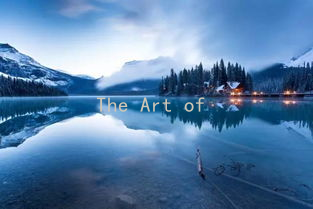Communication as a Love Language: Philosophical Insights for Couples
Communication as a Love Language: Philosophical Insights for Couples
In the complex tapestry of human relationships, communication emerges as a fundamental thread weaving couples together. While its often said that actions speak louder than words, verbal expression holds a unique power in conveying emotions, desires, and values. In this exploration, well delve into the philosophical implications of communication as a love language, drawing insights to enhance the relational dynamics between partners.
At its core, communication is not merely the exchange of information; it is an art form that reflects our inner selves. Philosophers like Søren Kierkegaard and Martin Buber emphasized the importance of authentic interaction in personal relationships. Kierkegaard’s notion of the “leap of faith” highlights the necessity of vulnerability in communication. When couples embrace open dialogue, they take a leap into the unknown, sharing their fears, joys, and aspirations. This vulnerability fosters intimacy, transforming communication into a profound love language.
Moreover, Buber’s concept of the I-Thou relationship contrasts the I-It paradigm, in which one partner views the other as an object to be managed rather than a unique individual. In an I-Thou relationship, each partner acknowledges the others inherent worth, leading to deeper connections. Such recognition is essential in communication; when partners engage in meaningful conversations, they honor each other as equals, facilitating a nurturing environment for growth and understanding.
Philosophical discourse around language also sheds light on the nuances of communication. Ludwig Wittgenstein asserted that the limits of our language are the limits of our world. In romantic partnerships, this implies that the richness of ones expressive capabilities directly influences the depth of the relationship. Engaging in conversations that explore shared dreams, values, and challenges cultivates a richer emotional landscape. Couples should strive not just to articulate feelings but to immerse themselves in the language of love—evoking empathy through storytelling, metaphors, and shared experiences.

The practice of active listening further amplifies the effectiveness of communication. Philosophers like Simone de Beauvoir have illustrated that understanding anothers perspective is critical in forging genuine connections. Active listening requires partners to not only hear each other’s words but to deeply comprehend their meanings and emotions. By validating each other’s experiences, couples create a safe space where both partners feel valued and understood, reinforcing their bond.
In moments of conflict, effective communication becomes even more crucial. The philosophical concept of thesis-antithesis-synthesis, originating from Hegel, suggests that opposing views can lead to greater understanding and unity. Couples can apply this principle by viewing disagreements as opportunities for growth rather than threats to their relationship. By inviting open discourse, partners can explore differing opinions, ultimately reaching a synthesis that respects both perspectives and strengthens their connection.
Moreover, incorporating creativity into communication can invigorate a couple’s love language. Philosophical traditions, such as existentialism, encourage individuals to find meaning and joy in their existence. Couples can infuse their conversations with creativity by sharing poetry, art, or even music that resonates with their emotions. This fusion of art and dialogue transforms ordinary conversations into vibrant expressions of love, enhancing mutual appreciation.
In conclusion, communication as a love language is a rich philosophical endeavor that invites couples to cultivate intimacy, understanding, and growth. By embracing vulnerability, practicing active listening, and viewing conflicts as opportunities for synthesis, partners can transform their dialogue into a powerful tool for connection. In the end, the words we exchange and the ways we express ourselves shape the narrative of our relationships, offering a clearer path to love and understanding in an ever-complex world.





